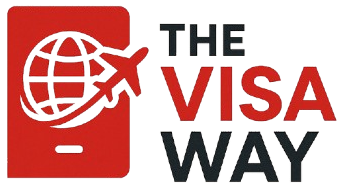Have a question
What is an EB-1A Visa?
The EB-1A Visa falls under the Employment-Based First Preference (EB-1) category, which is reserved for “priority workers.” This visa classification is intended for individuals who can demonstrate:
Extraordinary Ability in the sciences, arts, education, business, or athletics. This means the applicant must be able to show that they are one of a small percentage who has risen to the very top of their field.
Sustained national or international acclaim for their achievements.
An intent to continue working in their field of extraordinary ability upon entering the U.S.
The most significant advantage of the EB-1A is that it allows for self-petitioning (the applicant files on their own behalf), meaning a job offer from a U.S. employer and a Labor Certification (PERM) are not required.
Eligibility Requirements
To demonstrate “extraordinary ability” and sustained national or international acclaim, an applicant must satisfy one of the following two requirements:
Evidence of a One-Time Major International Award (e.g., Nobel Prize, Pulitzer Prize, Olympic Medal, or comparable award of international recognition); OR
Evidence meeting at least three (3) of the following ten (10) criteria set forth by U.S. Citizenship and Immigration Services (USCIS):
Receipt of lesser nationally or internationally recognized prizes or awards for excellence.
Membership in associations in the field which require outstanding achievement of their members.
Published material about you in professional or major trade publications or other major media.
Evidence of your original scientific, scholarly, artistic, athletic, or business-related contributions of major significance to the field.
Authorship of scholarly articles in professional or major trade publications or other major media.
Evidence of having been asked to judge the work of others in the same or an allied field.
Evidence that your work has been displayed at artistic exhibitions or showcases.
Evidence of having performed a leading or critical role in distinguished organizations.
Evidence that you command a high salary or other significantly high remuneration in relation to others in the field.
Evidence of commercial successes in the performing arts.
EB-1A Visa Process
The EB-1A process involves two main steps: the petition and the final application for permanent residence.
Petition Filing (Form I-140): The applicant (self-petitioner) files the Immigrant Petition for Alien Worker (Form I-140) with USCIS, including extensive documentation to prove they meet the eligibility criteria.
USCIS Approval: USCIS reviews the evidence and approves the petition. This step is eligible for Premium Processing for a decision within 15 calendar days.
Priority Date & Visa Bulletin: The applicant’s “priority date” (the date the I-140 was filed) is used to determine visa availability. For most countries, the EB-1 category is typically “current,” meaning a visa number is immediately available upon I-140 approval.
Adjustment of Status (I-485) or Consular Processing:
If the applicant is already in the U.S. and the visa is current, they file for Adjustment of Status (Form I-485).
If the applicant is outside the U.S., they proceed through Consular Processing at a U.S. Embassy or Consulate.
Green Card Issuance: Upon approval of the I-485 or completion of Consular Processing, the applicant receives permanent resident status.
Documents Required (Non-Exhaustive)
Valid passport.
Academic and professional documents (CV, diplomas, etc.).
Comprehensive Evidence supporting at least 3 of the 10 USCIS criteria (e.g., award certificates, contracts, copies of published articles, media mentions, letters from organizations where you served in a critical role, etc.).
Testimonials/Recommendation Letters from experts in the field.
Evidence of intent to continue work in the U.S. (e.g., letters of intent, contracts, business plans).
Completed USCIS Forms (I-140, I-485 if adjusting status, and supporting forms).
Medical Examination Report.




